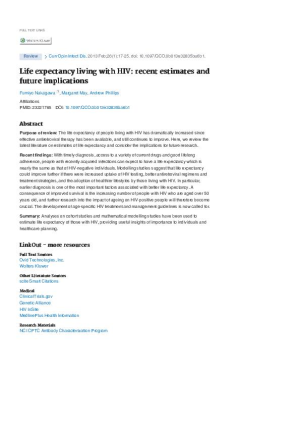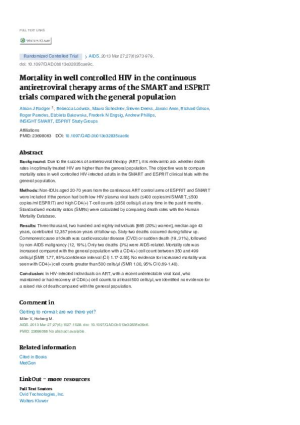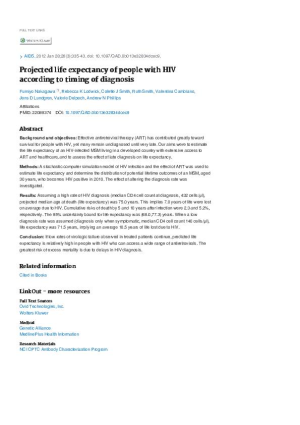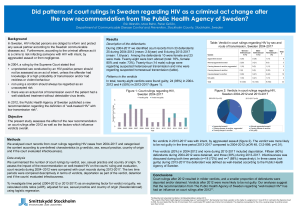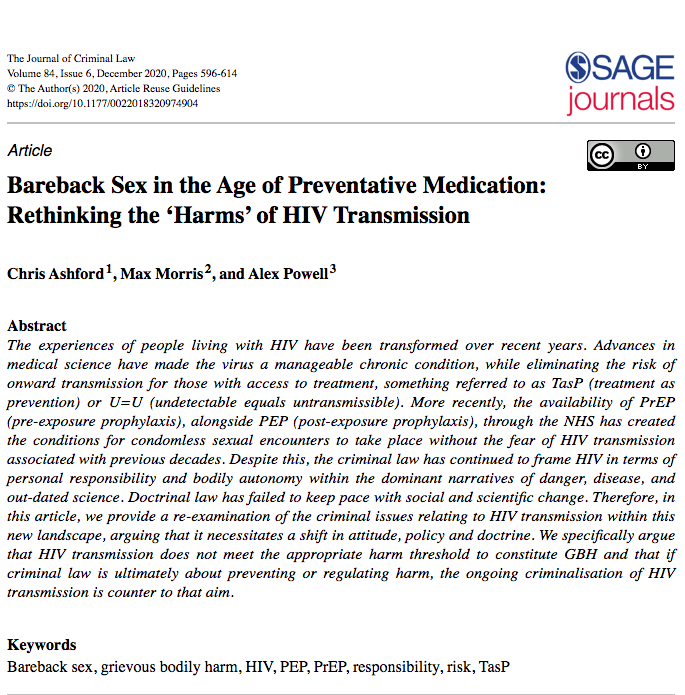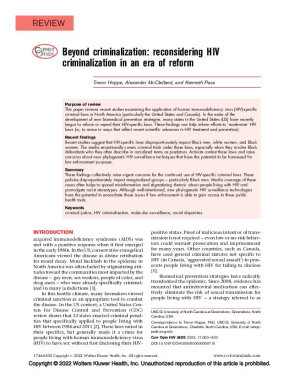Overview of various jurisdictions shows that an increased understanding of the impact of viral load on infectiousness has resulted in a number of jurisdictions revising or revisiting their criminal laws or prosecutorial policies relating to HIV non-disclosure, exposure and/or transmission.
Scientific evidence in a legal context
Impact of medical progress on legal outcomes
Life expectancy living with HIV: recent estimates and future implications
Review of the latest literature shows life expectancy of people with HIV has dramatically increased since effective antiretroviral therapy has been available, and it continues to improve. Modelling studies suggest life expectancy could improve further with increased uptake of HIV testing, better antiretroviral regimens and treatment strategies, and the adoption of healthier lifestyles by those living with HIV. Early diagnosis is particularly important.
Closing the gap: increases in life expectancy among treated HIV-positive individuals in the United States and Canada
Estimates temporal changes in life expectancy among HIV-positive adults on ART from 2000–2007 in the U.S. and Canada. Found a 20-year-old HIV-positive adult on ART could expect to live into their early 70s, a life expectancy approaching that of the general population. Differences by sex, race, HIV transmission risk group, and CD4 count remained.
Mortality in well controlled HIV in the continuous antiretroviral therapy arms of the SMART and ESPRIT trials compared with the general population
Compares mortality rates in well controlled HIV-infected adults in two clinical trials with the general population. Found that HIV-infected individuals on ART with a recent undetectable viral load, who maintained or had recovery of CD4(+) cell counts to at least 500 cells/μl, had no increased risk of death compared with the general population.
Projected life expectancy of people with HIV according to timing of diagnosis
Estimates the life expectancy of an HIV-infected MSM living in a developed country with extensive access to ART and healthcare. Finds that predicted life expectancy is relatively high in people with HIV who can access a wide range of antiretrovirals. Finds the greatest risk of excess mortality is due to delays in HIV diagnosis.
Did patterns of court rulings in Sweden regarding HIV as a criminal act change after the new recommendation from The Public Health Agency of Sweden?
The study assesses the effect of the new recommendations from the Public Health Agency of Sweden on court rulings after 2012 as well as the factors which influence verdicts overall.
Bareback Sex in the Age of Preventative Medication: Rethinking the ‘Harms’ of HIV Transmission
This article provides a re-examination of the criminal issues relating to HIV transmission within the new landscape of advances in medical science and availability of PrEP and PEP, arguing that it necessitates a shift in attitude, policy and doctrine. It specifically argue that HIV transmission does not meet the appropriate harm threshold to constitute GBH and that if criminal law is ultimately about preventing or regulating harm, the ongoing criminalisation of HIV transmission is counter to that aim.
HIV Criminalization in Indiana: Evaluation of Transmission Risk
Indiana has six laws that criminalize people living with HIV, spanning both the public health and criminal codes. This study evaluates whether these laws reflect current understandings of HIV science and criminalize conduct that poses negligible or no risk of transmitting HIV.
Using Science for Justice: The Implications of the Expert Consensus Statement on Zimbabwe’s HIV Criminalisation Law
The article finds that, if applied by lawyers, prosecutors and courts, the Expert Consensus Statement may alleviate some unjust prosecutions and convictions in guiding courts to assess evidence on HIV transmission, to draw appropriate inferences on mental elements of the offence, to recognise defences on the basis of transmission risk-reducing conduct, and to more appropriately inform the courts’ assessment of the harm of HIV infection in sentencing. The implications of the science reflected in the Expert Consensus Statement may also weigh in favour of a finding by the courts that the offence is unconstitutional if a new constitutional case is made against the offence.
Beyond criminalization: reconsidering HIV criminalization in an era of reform
This paper reviews recent studies examining the application of HIV-specific criminal laws in North America (particularly the United States and Canada). In the wake of the development of new biomedical prevention strategies, many states in the United States (US) have recently begun to reform or repeal their HIV-specific laws. These findings can help inform efforts to ‘modernize’ HIV laws (or, to revise in ways that reflect recent scientific advances in HIV treatment and prevention).


